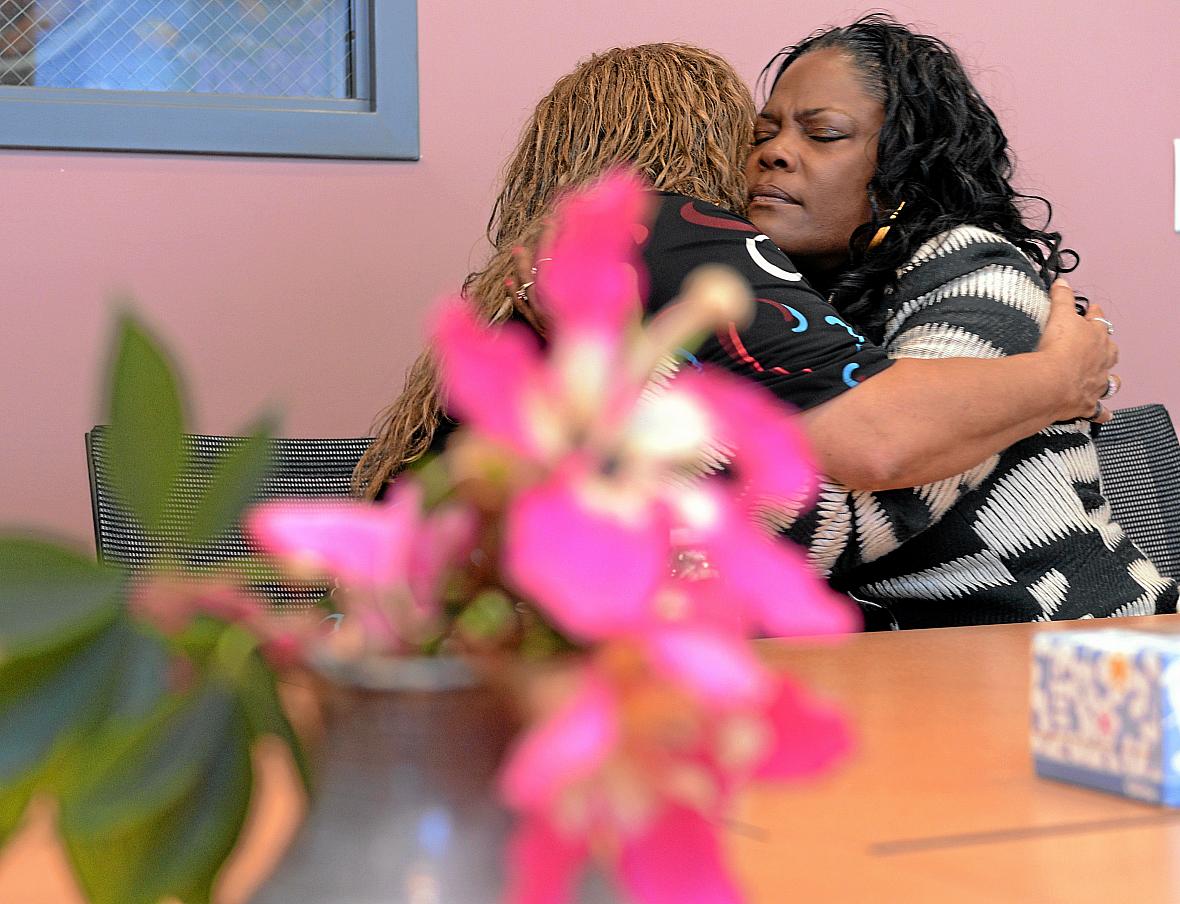Public mental health centers face new competition under ACA
Under the Affordable Care Act, health plans are now required to provide mental health services. That means the newly insured, including the low income, will have the option to seek care anywhere they want, even outside the Los Angeles county health system. The ACA has thrust publicly run mental health clinics into a new landscape of competition, which is why the Los Angeles County Department of Mental Health has been upgrading its public clinics.


COMPTON >> The waiting room inside the Compton Mental Health Center still had a VCR connected to an analog TV set.
What was supposed to be a children’s area was a table with a few crayons. None of the hard, plastic chairs in the center matched.
But just a few weeks ago, Pergo floors were installed. Plants were brought in. The VCR and old analog TV were removed and a DVD player and flat screen brought in. And a sticker on the front window reads: “If you come in as a guest, we hope you leave as a friend.”
The $100,000 upgrade has a simple motivation behind it: First impressions count.
The small changes also have big implications for the Los Angeles County Department of Mental Health. Under the Affordable Care Act, health plans are now required to provide mental health services. That means the newly insured, even the low income, will have the option to seek care anywhere they want, even outside the county health system.
“What we have to do is remodel our facilities to reflect our quality of care,” said Marvin Southard, director for the LACDMH. It is the largest such department in the nation, overseeing 75 programs and serving more than 250,000 residents each year.
Funding for the upgrades to the Compton center as well as those planned for clinics in Arcadia, West Hills, Long Beach, San Fernando and downtown Los Angeles comes from the 2004 voter approved Proposition 63, the Mental Health Services Act, which placed a 1 percent income tax on those who have a personal income in excess of $1 million.
The upgrades are one way that government-run health services, including clinics and mental health centers, are coping with being thrust into a landscape of competition, said Dr. Anish Mahajan, director of system planning, improvement and data analytics with the Los Angeles County Department of Health Services.
“One of the big missions and one of the big strategic goals is to be a provider of choice for patients who gain insurance under health reform,” Mahajan said. “We have many initiatives we’re looking at. We’ve developed a patient-centered medical home model. Every insured patient receives a specific primary care provider, along with a specific medical home.”
The Department of Health Services oversees four hospitals, two trauma centers and almost two dozen health centers. Over the last year, county health workers helped to sign up 250,000 people into HealthyWay LA, which converts to Medi-Cal on Jan. 1.
“We provide the whole gamut of care,” Mahajan said. “But if a sizable population of patients leave county health and go elsewhere, it would be a challenge for the county comprehensive care centers to continue.”
The fear that the newly insured would abandon all forms of government health services also arose in Massachusetts where reform rolled out in 2006.
Those concerns never really materialized, said Dr. Georges Benjamin, executive director for the American Public Health Association.
But he added: “Every state is going to be different. Every city is going to be different.”
The freedom of choice among the newly insured should be celebrated because competition improves services, Benjamin said. There are some services that the private health sector does better than the public sphere, and vice versa. Mass vaccination is an example of public health excelling over private care, he said.
“Patients have a choice and I think that’s one of the benefits of the Affordable Care Act ... removing the control of health care from the guilds to the patients,” he said. “Health departments are actively thinking about what the world will look like in an environment where everyone will have an insurance card.”
Ongoing glitches with the federal government’s market exchange, postponed deadlines on when to enroll and other issues related to the Affordable Care Act will likely result in millions of Americans remaining uninsured for years to come, which means they will continue to need county services, health care policy experts have said.
Southard said in addition to upgrading Los Angeles county’s mental health centers, his department continues to work to unravel the stigma surrounding mental illness and violence. Recent mass shootings by lone gunmen, for example, have linked politically charged discussions with depression, schizophrenia and other illnesses. In addition, the mental health department continues to work with the homeless population. More than 30 percent of the estimated 58,000 homeless men and women in Los Angeles County suffer with mental health issues, while another 34 percent struggle with substance abuse, according to published reports.
Earlier this year, the Los Angeles County Department of Mental Health was criticized in published reports for using Proposition 63 funds for yoga and Zumba among other classes at centers. Southard said mental health requires a holistic approach to healing.
Those who suffer from trauma, for example, respond well to physical activity, he said.
On a recent weekday, several clients of the center said those Zumba and yoga classes round out their care and help them look forward to keeping their appointments at the clinic, and even volunteering. Among them are those who are survivors of sexual violence, or those who have suffered from depression because of an illness or loss of a child.
Even if they had an option to seek private care in Los Angeles’ fanciest neighborhoods, most of the clients said they wouldn’t leave the Compton center.
“You hear all these horrible stigmas behind mental illness, but it’s the opposite,” said one woman, who gave her name only as Antoinette, 37. “Everyone here tries to meet your needs.”
Jacqueline, 56, said that when she suffered a stroke and lost her job as a bus driver, depression settled in. She couldn’t walk or speak well and she cried all the time. Her friends told her to try the center, which she passed every day on her bus route down Compton Boulevard. She was skeptical at first.
“I don’t know what I would have done without it,” she said. “I’m walking now.”

